
6 Benefits of Visualization for Swimmers
Wondering what visualization can do for your swimming? Here are some evidence-based benefits of visualization for swimmers for more confidence, less choking, and even better technique.
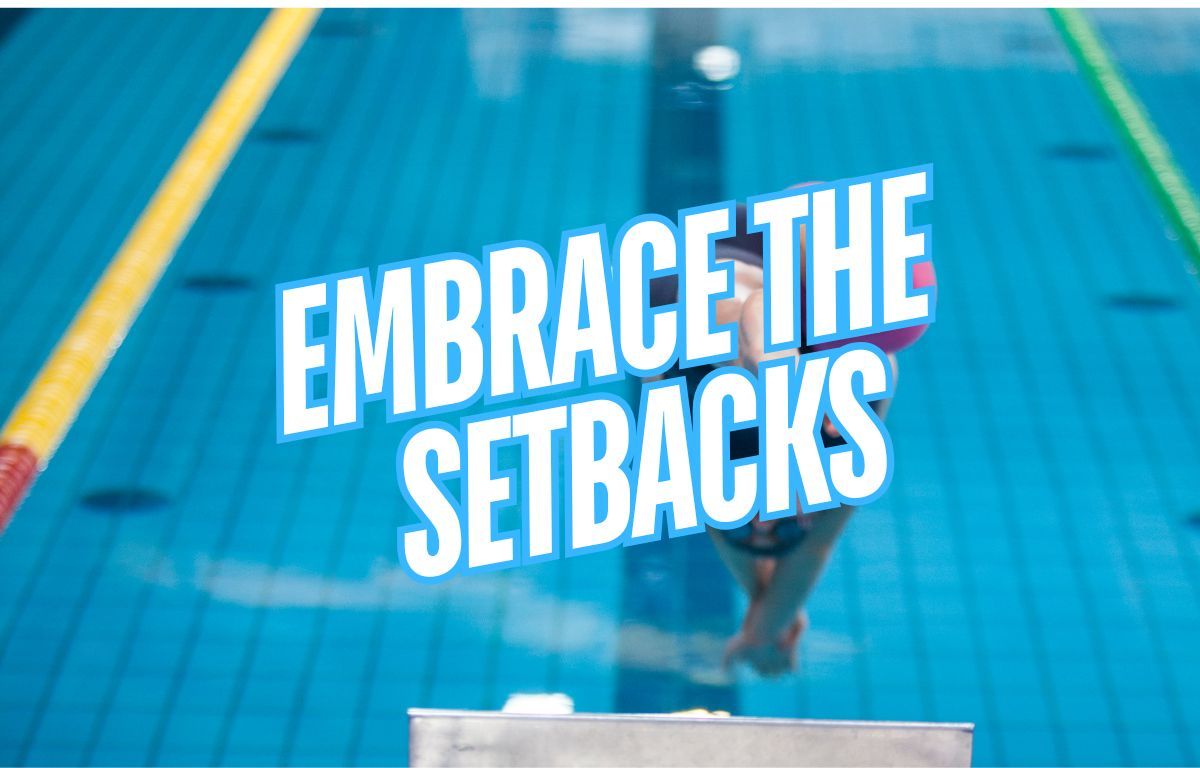
Frustrated with setbacks in the pool? Here are some tips for improving your ability to embrace setbacks and swim faster.
Swimmers tend to be highly committed and driven.
The demands of the sport make this a requirement.
We stack the early mornings from an early age, invest long weekends at away swim meets, and train mercilessly all year to shave tenths of a second in races that mostly last under a minute or two.
This type of commitment means we are often the hardest on ourselves when things don’t go our way.
Some of the biggest hits when it comes to setbacks include:
You know what I’m talking about.
These setbacks can feel intensely personal and disconcerting.
But they can often be just the thing to send us hurtling into new, faster waters.
Here are some things to remember when a setback surprises you, like a get-out swim in the middle of a swim practice on a random Wednesday morning.
Anytime we attempt something difficult or new, setbacks and adversity are going to happen.
Consider them the price of admission; while we don’t want them and don’t envision them when dreaming up a big new goal, they are part of the process.
By normalizing the occasional setback, they lose their motivation-sapping power. Swimmers often imagine a perfectly laid out road ahead of them.
But no matter how clearly you set your goals, build a process for success, and hard you work; something will jump out of the darkness of the deep end and test you when you expect it least.
This doesn’t make you less deserving of the path. Setbacks are part of the deal.
One of the not-so-secret secrets of elite swimmers is that they are exceptional at learning what it takes to excel.
Instead of expecting things to smoothly and perfectly every day in training (and competition), they use feedback loops in training and competition to learn and improve.
“Failing at something is the best way to learn what it takes to succeed at it. Failing to make the Seoul Olympic team was the beginning of my success, ironically enough.” – Summer Sanders
For example, with a good swim practice, they reflect on why the workout went well and seek to replicate those circumstances in future training sessions.
With a bad swim practice, they learn from what went wrong and seek to limit those circumstances the next time they hit the water.
“Things won’t go perfect. It’s all about how you adapt from those things and learn from mistakes.” – Michael Phelps
Same goes for competition: Racing provides swimmers a unique opportunity to learn where they came up short in training.
By learning from your setbacks, not only do you lessen the odds that this particular setback will afflict you again, but you also learn firsthand what success takes.
Setbacks are often highly demoralizing in the moment. They can shatter confidence, arrest momentum, and make us want to give up.
After all, you’ve put in so much work only to watch the odds of success slip from your grasp.
Once that initial wave of discouragement washes over you, it’s time to use those setbacks to fuel the comeback!
Injured your shoulder? Get to work strengthening your core and kick to build devastating lower body fitness.
Disappointing race? Soberly assess where you can improve and build a plan to attack points of weakness.
Bad swim workout? Put together a process for conquering your next swim workout.
Setbacks can feel like a kick to the chlorinated bottom, robbing us of progress and confidence, or they can launch us to new levels of performance in the pool.
Setbacks have another interesting benefit: they increase the value of your overall journey in the pool.
Sure, it would be great if things went perfectly from the time the season starts until the moment you sail into the touchpad to see a new PB and number one beside your name at the Big Meet.
The added effort and resulting hard-earned success that follow periods of adversity add depth to what is already a meaningful goal.
This season, be the swimmer that uses adversity to their advantage.
Ready to take your mental game to the next level?
Swimmers frustrated with underwhelming performances on race day and want to conquer their mindset will love Conquer the Pool: The Swimmer’s Ultimate Guide to a High-Performance Mindset.
Written with the feedback of 200+ Olympians, NCAA champions, and head coaches, the book is the complete blueprint for an unbeatable mindset in practice and training.
From learning how to build a killer pre-race routine to everything you’ll ever need to master pre-race nerves, Conquer the Pool gives swimmers the tools to swim with total confidence on race day.
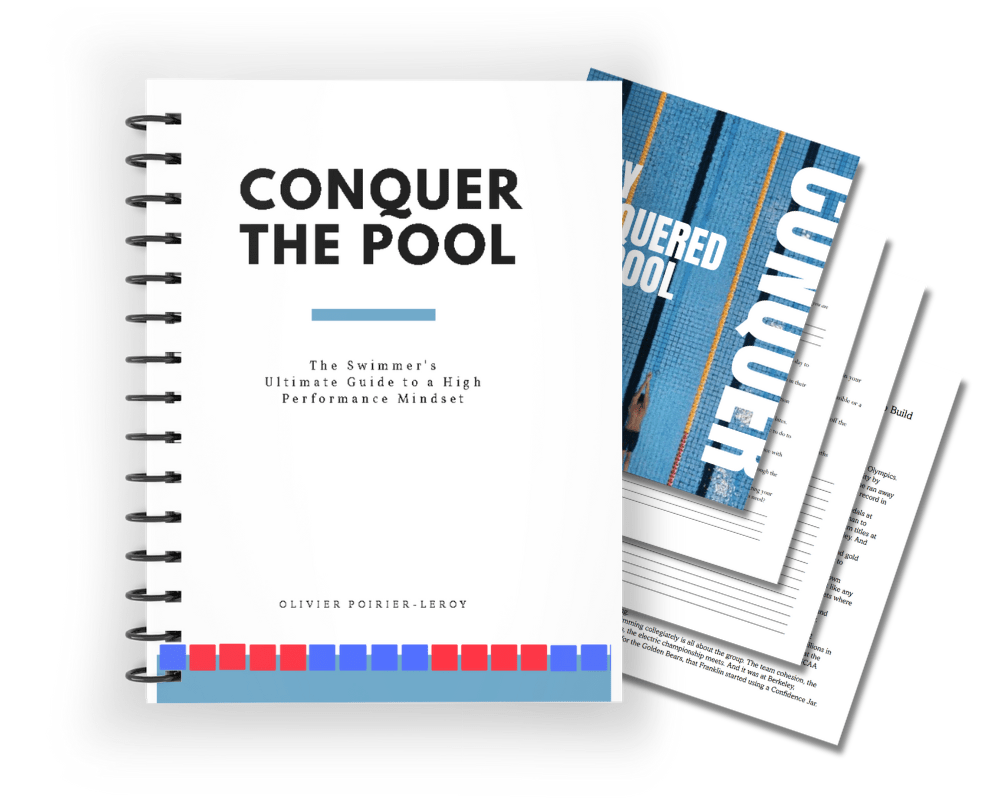
How to Deal with Pre-Race Nerves at Swim Meets. Struggling to swim fast under pressure? Here are some tips for how to manage pre-race nerves on race day.
6 Benefits of Mental Training for Swimmers. Feeling inspired to take your swimming to the next level? Here are 6 benefits of mental training for competitive swimmers.

Olivier Poirier-Leroy Olivier Poirier-Leroy is the founder of YourSwimLog.com. He is an author, former national level swimmer, two-time Olympic Trials qualifier, and swim coach.
✅ Free shipping on Orders over $49
✅ Price Match Guarantee
✅ Best selection of gear for training and competition
✅ Fast and Easy Returns

“This is the best book I have ever seen concerning mental training.” — Ray Benecki, Head Coach, The FISH Swim Team


Wondering what visualization can do for your swimming? Here are some evidence-based benefits of visualization for swimmers for more confidence, less choking, and even better technique.

Ready to uncork some best times at your next swim meet? Here’s what you need to know to prepare for a swim meet.

The right mental skills can help you unlock faster swimming on race day. Here is a look at the right skills to use for competition.
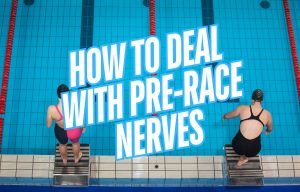
Struggling to swim fast under pressure? Here are some tips for how to manage pre-race nerves on race day.
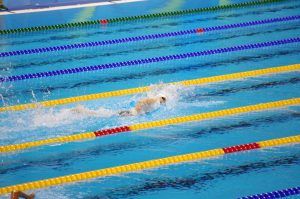
Swimmers often find themselves stuck with doubt when it comes to doing tough things in the water. Here’s a simple question to ask when you find doubt and uncertainty stopping you from excellence.
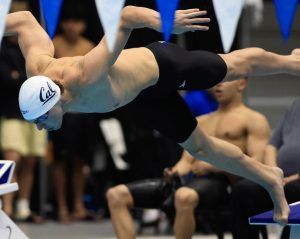
Looking to take your mindset and swimming to the next level? Here are five things you can learn from Jack Alexy, one of the fastest freestylers on the planet.
SITE
SHOP
GUIDES

LANE 6 PUBLISHING LLC © 2012-2025
Join 33,000+ swimmers and swim coaches learning what it takes to swim faster.
Technique tips, training research, mental training skills, and lessons and advice from the best swimmers and coaches on the planet.
No Spam, Ever. Unsubscribe anytime.
